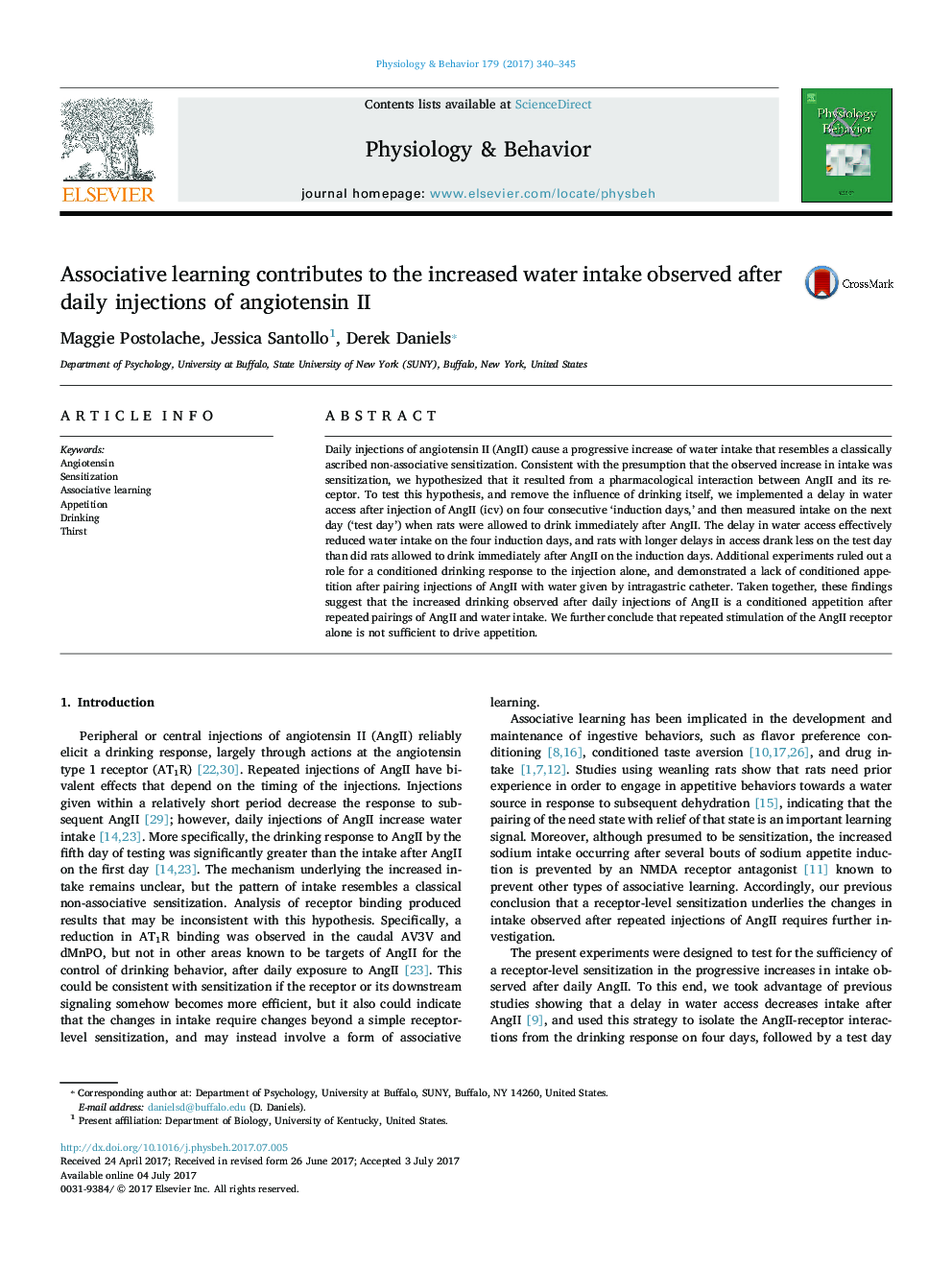| Article ID | Journal | Published Year | Pages | File Type |
|---|---|---|---|---|
| 5593661 | Physiology & Behavior | 2017 | 6 Pages |
Abstract
Daily injections of angiotensin II (AngII) cause a progressive increase of water intake that resembles a classically ascribed non-associative sensitization. Consistent with the presumption that the observed increase in intake was sensitization, we hypothesized that it resulted from a pharmacological interaction between AngII and its receptor. To test this hypothesis, and remove the influence of drinking itself, we implemented a delay in water access after injection of AngII (icv) on four consecutive 'induction days,' and then measured intake on the next day ('test day') when rats were allowed to drink immediately after AngII. The delay in water access effectively reduced water intake on the four induction days, and rats with longer delays in access drank less on the test day than did rats allowed to drink immediately after AngII on the induction days. Additional experiments ruled out a role for a conditioned drinking response to the injection alone, and demonstrated a lack of conditioned appetition after pairing injections of AngII with water given by intragastric catheter. Taken together, these findings suggest that the increased drinking observed after daily injections of AngII is a conditioned appetition after repeated pairings of AngII and water intake. We further conclude that repeated stimulation of the AngII receptor alone is not sufficient to drive appetition.
Related Topics
Life Sciences
Biochemistry, Genetics and Molecular Biology
Physiology
Authors
Maggie Postolache, Jessica Santollo, Derek Daniels,
